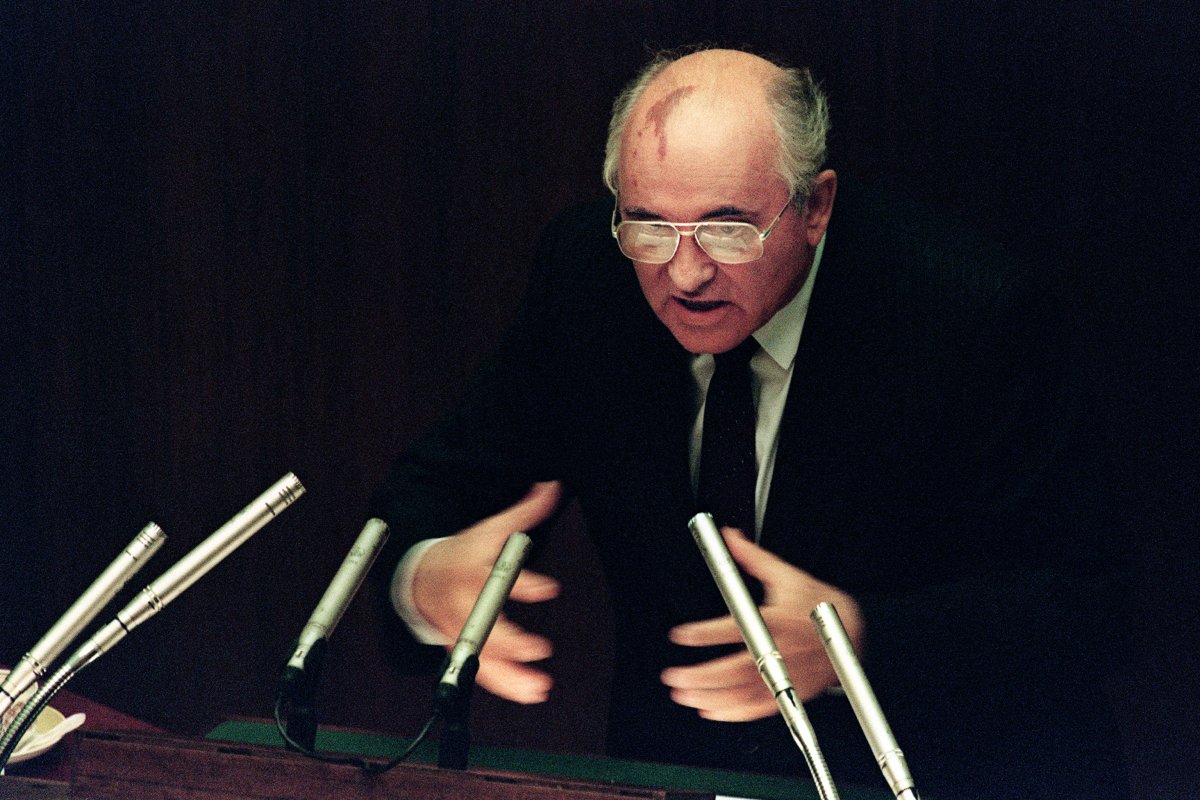Mikhail Gorbachev is of the most important statesmen of the last quarter of the 20th century. Working with President Ronald Reagan, he buried the hatchet and ended the Cold War—and the Soviet empire, too.
Despite Francis Fukuyama's infamous opinion, history certainly did not end. The imperial collapse was an unintended consequence of Gorbachev's desire to humanize socialism and save the USSR. He utterly failed in both tasks, but Russia and other Soviet republics were liberated from the Communist nightmare, and the world gained 30 years of relative peace, which is now coming to an end.
Gorbachev, who began his career as a combine harvester operator, did not need to launch the monumental reforms of glasnost (openness) and perestroika (restructuring) that lead to the USSR's demise. Had he stuck to business as usual, he may have extended the life of the impoverished and rickety Soviet Union and allowed it to keep its sphere of influence that stretched from Nicaragua to Cuba to Cam Rahn Bay in Vietnam. For this collapse, Russian President Vladimir Putin and his generation of KGB cronies never forgave him.
Born in 1931 in a village in Russia's Stavropol region—the breadbasket of Russia—Gorbachev's peasant background helped burnish his credentials as he climbed up the ladder of power in the USSR. He was never going to be a true heir to Joseph Stalin, though. Gorbachev grew up with the indelible imprint of Stalin's rule: uncles and an aunt who died from starvation in Stalin's brutal agricultural collectivization, had both of his grandfathers sent to the gulag and one of them tortured. He carried the memory of his family's suffering with him through his career.

As Gorbachev rose through the Communist ranks, the Soviet leader Nikita Khrushchev was dismantling Stalin's cult of personality. Gorbachev, himself, sought to find "socialism with a human face."
He became the youngest Soviet Central Committee secretary and was the "next gen" successor in the Politburo as the Leonid Brezhnev, Yuri Andropov, and Konstantin Chernenko all died in quick succession from 1982 to 1985.
Gorbachev, Alexander Yakovlev, the Soviet Communist Party chief of ideology—also from a peasant stock—and the Georgian Communist Party leader Eduard Shevardnadze realized business as usual was unsustainable. They saw the glue that held the empire together—violence and ideology—must go.
Under Yakovlev's direction, documents from Stalin's era were declassified, the good names of many "enemies of the people" were restored and the scope of communist crimes made public. Yet that openness couldn't smooth the way to democracy and free markets. As the joke went, transitioning to socialism is making a fish soup out of an aquarium, but moving from socialism to capitalism is making an aquarium out of fish soup.
Gorbachev wasn't able to make that transition, either for his country or himself. He remained a socialist, even if he was somewhat open to democratic politics, and was torn between the reformers and hardline forces, including his Vice President, Defense Minister, and the KGB boss, who, in August 1991 tried to remove him from office while he was on vacation in a botched putsch. Shortly thereafter, having failed to build a political or military support base, Gorbachev and the Union of Soviet Socialist Republics ran out of time.
And so did some crucial reforms to the Communist Party and the state. In my conversations with all Gorbachev, Yakovlev, and Shevardnadze, these fathers of the Soviet demise expressed no regrets.
When Boris Yeltsin, whose family had also suffered under Stalin, pushed the Communists out of power, he, too, failed to reform the military and the secret police. These institutions became core of the nation's attempted imperial revival, which has resulted in Russia's nuclear rearmament, anti-Americanism, and the wars of aggression against Georgia (2008), and Ukraine (2014-?).
Gorbachev has been vilified by the Putin propaganda machine for "dismantling" the USSR, though it was never the last Soviet ruler's intention—he had wanted to humanize, improve, and save the Red Empire, which had always been a "mission impossible."
As he was lying on his deathbed in a Moscow hospital, Russian tanks rolled into Ukraine, a constituent member of the Soviet Union and the birthplace of his maternal grandparents.
According to his close friends, Gorbachev was horrified by how his dream of shared humanity was trampled by Russia's irredentist masters. But no amount of Putin's propaganda was able to keep away the many thousands of people who turned out at his funeral to thank him for his life's greatest—if unwished for—achievement: the burial of the Soviet monster.
Ariel Cohen, Ph.D., is the author of Russian Imperialism: Development and Crisis. He is a Senior Fellow (non-resident) at the Atlantic Council and director of the Energy, Growth, and Security Program at the International Tax and Investment Center.
The views expressed in this article are the writer's own.
Uncommon Knowledge
Newsweek is committed to challenging conventional wisdom and finding connections in the search for common ground.
Newsweek is committed to challenging conventional wisdom and finding connections in the search for common ground.
About the writer
To read how Newsweek uses AI as a newsroom tool, Click here.








